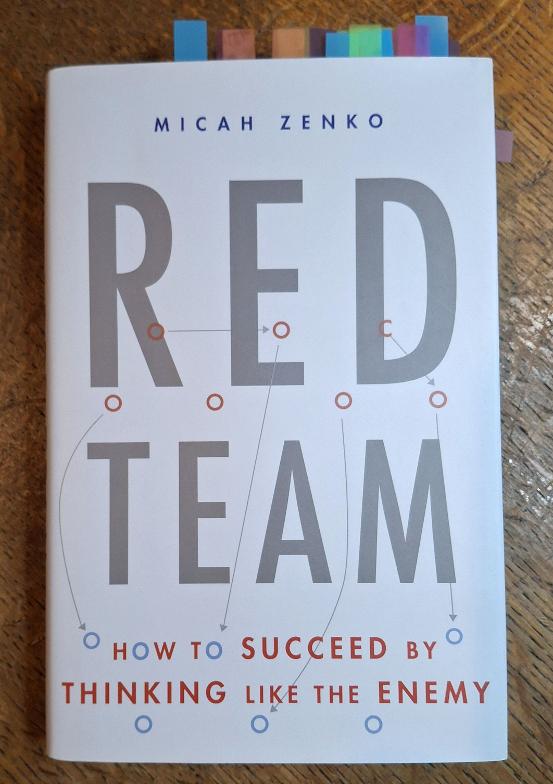Red Team, How to Succeed by Thinking Like the Enemy
By Micah Zenko
Red Teaming is a book about the use of Red Teams, to determine and address the weaknesses in organisations. It covers both publicly and privately funded organisation. It discusses how and when they are used, and the benefits and challenges Red Teams have in doing their work, through example and case studies ranging from military war games to private company product launches.
The central theme of this book being, “you cannot grade your own homework”. People can suffer from the Dunning-Kruger effect, where if they are incompetent, they are terrible judges of their own performance. Or they can suffer from organisational biases, where they become captured by the institutional culture and adopt the personal preferences of their bosses.
It discusses the core red-teaming techniques of simulations, vulnerability probes, and alternative analysis, and how they succeed and fail. One of the main reasons red-teaming can fail, as identified throughout the book, is the lack of buy-in from upper management. Some rig-the-game to confirm a preconceived outcome, others do it to tick a box given to them from higher ranks, and others can do it to justify a decision which has already been made. A new Chief Operating Officer might do it, to create their mark on an entity and separate them from the previous person. Then of course the delivery of red-team findings and their implementation is key. Findings cannot be a “gotcha”.
Business war-gaming can include scenario (or strategic) planning, liberating structures, and promote corporate cultures where employees can be directed to identify strategic flaws or performance shortcomings, and report them to their bosses. But as the book notes “Devil’s advocates, if occasionally right, will get hunted down and killed by the antibodies in a company. Remember they just won an argument. That means someone lost.”
It discusses the nature and type of people required to be in a Red Team. “The best red teamers tend to be self-described “oddballs” and “weirdoes,” as well as critical and divergent thinkers inherently skeptical of authority and conventional wisdom.”
This is a really interesting book, with some excellent insights and examples. It is well worth picking up this book for read and thinking about how it could be applied.

Author: Noel Clarke
Date: 29/07/2025
- Building Information Modelling (BIM)
- Building Pathology, Building Surveying
- Building Services
- Design and Architecture
- Dispute Resolution
- Energy Sustainability
- Fitting Out
- General Law
- Health and Safety
- Planning and Building Control
- Procurement
- Property Law and Info
- Quality Control
- Risk
- Teamwork and Communication
© Copyright Noel Clarke
Privacy Policy and Terms of Use